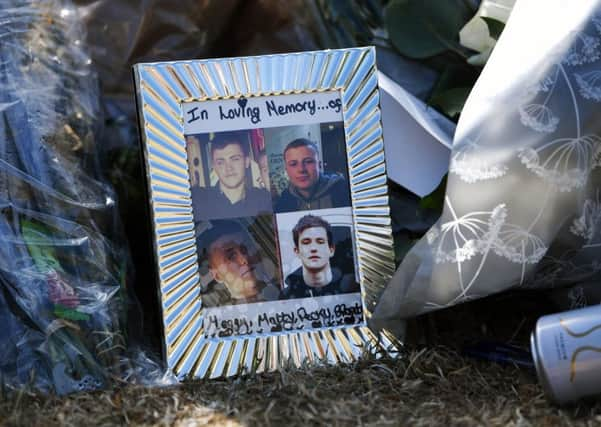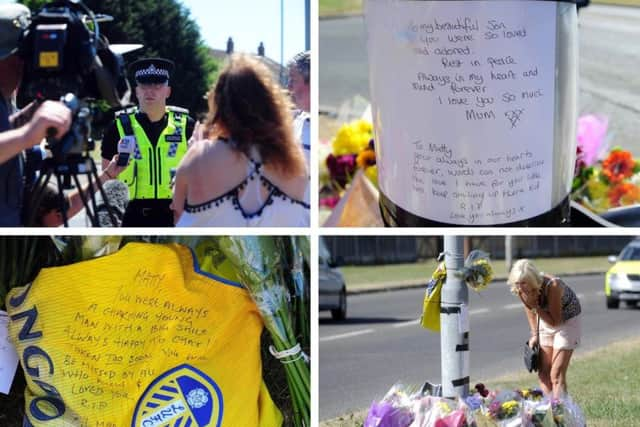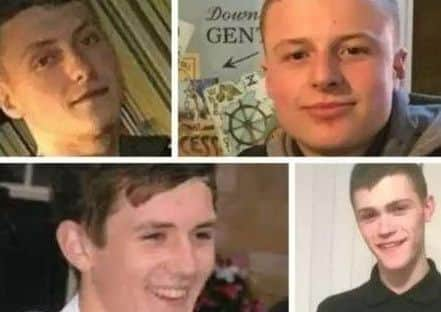To save lives after Leeds crash tragedy schools must drive home message on car dangers – Jayne Dowle


Not all cars, you understand. Just the dirty, smelly, polluting petrol and diesel kind. The latest recommendations from the Government’s Science and Technology Committee advise that the sale of conventional diesel and petrol vehicles should end in 2035, five years earlier than previously suggested, in order to meet urgent targets on climate control.
Advertisement
Hide AdAdvertisement
Hide AdThe motoring organisations and drivers’ forums are up in arms, understandably. If you have tried to replace your vehicle recently – as I have – you will understand that the choice and cost of electrically-powered equivalents is way beyond the affordability of many ordinary people.


We looked into it, but couldn’t countenance the cost, which starts at around £18,000, including the Government’s discount from the electric car grant. The notion has a very long way to go before petrol and diesel models are consigned to the scrap heap.
Advertisement
Hide AdAdvertisement
Hide AdAlso, the concept of public transport would have to undergo such a massive rethink to prevent the entire country grinding to a halt.


And even if electric cars did eventually become commonplace, I suspect that millions of people would still be left out of the loop, literally – especially those who live in isolated rural areas, where a car is more of a lifeline than anywhere else.
So whilst I would never go so far as to suggest banning cars altogether, I would lend my backing to any measure which prevented young people from getting behind the wheel when there is any chance at all that they might drive recklessly.
Advertisement
Hide AdAdvertisement
Hide AdMy son turned 17 earlier this month and has no immediate plans to drive. He knows, and I often remind him, that my idea of horror is a small car packed with teenage boys. However, plenty of his friends have already passed their tests and turn up at our house in their motors.
Every time he climbs into the passenger seat I say a little prayer to keep them all safe. Jack tells me not to worry, but I once did some work with the Huddersfield-based road safety charity Brake. Their graphic photographs and searing accounts of accidents involving young drivers would make any parent more than worry.
The charity’s latest research finds that 279 young people aged between 17 and 24 were killed on Britain’s roads in 2017. In addition, although young people make up only seven per cent of licence holders, they represent more than 20 per cent of drivers killed or seriously injured in car crashes.
Removing car keys from reach until the age of 25 would be my preference, but I realise that this is not only impractical but against human rights.
Advertisement
Hide AdAdvertisement
Hide AdHowever, I would like to support and help spread the message of Leeds senior coroner Kevin McLoughlin, who is urging schools and driving instructors to tell students about a fatal drink and drug driver crash that killed four young men in Horsforth, Leeds, last June.
The driver of the car, 21-year-old Caelan Megson, was around two and half times the drink-drive limit and had taken cocaine when his Seat Leon was involved in a fatal crash with a taxi.
The coroner recorded four verdicts of death due to road traffic collision and warned that six young people (two teenage girls were also in the vehicle) should not have been in a car with a driver who had consumed significant intoxicants.
He also urged schools and driving instructors to do their bit to help prevent any more such tragedies: “I would ask that every driving instructor in the area cuts out the media coverage from newspapers of this calamitous tragedy and makes their students read it so they understand the responsibilities that come with having a driving licence.”
Advertisement
Hide AdAdvertisement
Hide AdAnd he is totally right. He makes a good point about driving instructors, but responsible schools should also be taking steps to inculcate the message at an age earlier than 17 when attitudes to driving will already have been formed.
I know from my 13-year-old daughter, who recently experienced a sobering ‘special school assembly’ on the dangers of the drug Ecstasy, that strong words from serious teachers do hit home, even with pupils who may be otherwise hard to reach.
Staff had discovered that children as young as 12 were buying the drug locally and coming to school under the influence. When there is a problem, the only thing a responsible school can do is to respond with authority; drink/drug driving, knives, bullying and gang violence, all come under this remit.
This is not to absolve my responsibility as a parent, but simply to underline it with thick black marker pen. If more schools took such matters seriously and reacted accordingly, by the time it’s Lizzie’s turn to learn to drive, I might even give her the car keys.